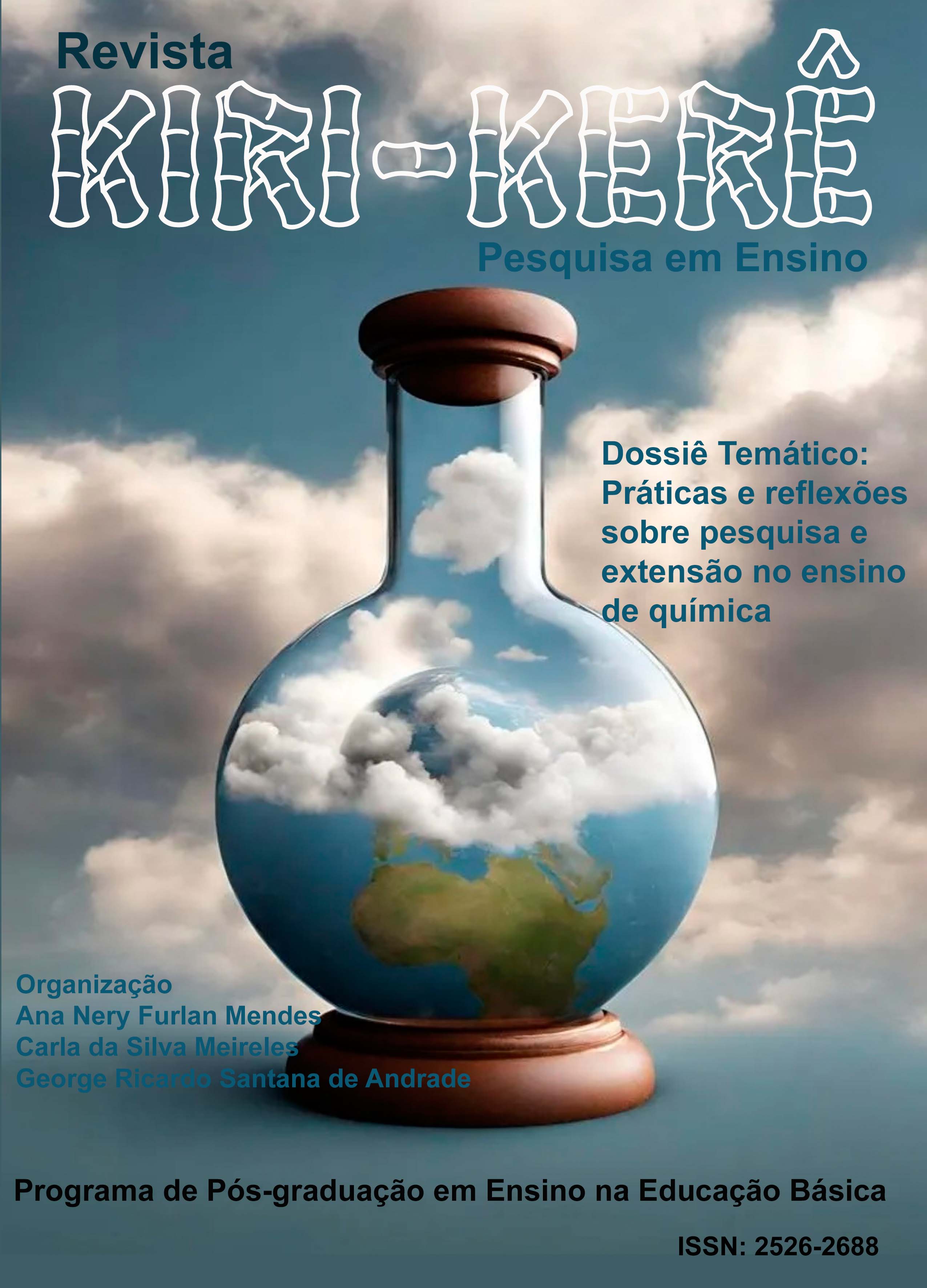Production of a didactic game to discuss the seven types of recyclable plastics
DOI:
https://doi.org/10.47456/krkr.v1i17.44515Keywords:
Chemistry; Educational Games; Plastics; Active Methodology; GamificationAbstract
Plastic materials are present in the daily lives of all of society in various sectors and their unbridled consumption has led them to become the cause of some of today's most serious environmental problems. Their relevance to the process of appropriating knowledge is due to the fact that they permeate students' prior knowledge and thus serve as a basis for teaching chemistry. In this sense, the aim of this paper is to discuss the didactic game "Que plástico eu sou?" (What kind of plastic am I?), which was developed during the first academic semester 2023/1 of the Postgraduate Program in Teaching in Basic Education (PPGEEB), with the aim of informing potential players about the existence of different types of recyclable plastics and associating them with their chemical composition. The research methodology was to validate the didactic material with a group of 8 primary school teachers, who were instructed to follow the rules described in the game and test its playability by carrying out all the procedures suggested by the game. These teachers then answered a questionnaire containing five questions, four of which were objective and one discursive, referring to its physical and pedagogical aspects. The results obtained after validation showed that the game is simple, has clear information, easy-to-understand rules and makes it possible to learn about the characteristics of the seven types of recyclable plastics in a playful way. It also stimulates environmental awareness by demonstrating the impacts that inappropriate disposal of these materials can have on the environment.
Downloads
References
BARBOSA, Dyenifer M. ROCHA, Thaís R. Jogos didáticos em um curso de formação inicial docente em química: aspectos teórico-práticos para a abordagem de conteúdos de físico-química. Revista Ciência e Cognição. São Paulo, v. 15, n. 1, p. 45 – 56, 2022.
BERGWERF, Herman. Molview: plataforma de visualização de dados. Versão 2.4, 2014. Disponível em: https://molview.org/. Acesso em: 25 maio 2023.
COLTRO, L.; DUARTE, L. C. Reciclagem de embalagens plásticas flexíveis: contribuição da identificação correta. Polímeros. São Paulo, v. 23, p. 128 –134, 2013.
CORDEIRO, Márcia Regina, DA SILVA, Bruna, KIILL, Keila Bossolani. Jogo Didático Investigativo: Uma Ferramenta para o Ensino de Química Inorgânica. Revista Química Nova na Escola. São Paulo, v. 37, n. 1, p. 27 – 34, 2013.
DOMINGOS, Diana Cristina Araújo, RECENA, Maria Celina Piazza. Jogos didáticos no processo de ensino e aprendizagem de química: a construção do conhecimento. Revista Química Nova na Escola. Mato Grosso do Sul, v. 44, n. 1, p. 272 – 281, 2010.
FIANI, Ronaldo. Teoria dos Jogos. Rio de Janeiro: Grupo GEN, 4 ed., 2015.
FREIRE, Paulo. Pedagogia do Oprimido. Rio de Janeiro: Editora Paz e Terra, 17 ed., 1974.
GAMA, Bianca M. ALVES, Andréa Aparecida R. Reelaboração de um jogo: recurso didático como facilitador do processo de ensino e de aprendizagem no Ensino de Química. Revista Química Nova na Escola. São Paulo, v. 44, n. 1, p. 17 – 25, 2022.
LEITE, Bruno S. Kahoot! e Socrative como recursos para uma Aprendizagem Tecnológica Ativa gamificada no ensino de Química. Revista Química Nova na Escola. São Paulo, v. 37, n. 2, p. 147 – 156, 2020.
LEITE, Maria Aparecida S.; SOARES, Márlon H. F. B. Jogo Pedagógico para o Ensino de Termoquímica em turmas de educação de jovens e adultos. Revista Química Nova na Escola. São Paulo, v. 43, n. 3, p. 227 – 236, 2019.
MEIRA, Luciano; BLIKSTEIN, Paulo. Ludicidade, jogos digitais e gamificação na aprendizagem. Porto Alegre: Penso Editora Ltda, 2020.
OLIVEIRA, Lívia Micaelia Soares. DA SILVA, Oberto Grangeiro. FERREIRA, Ulysses Vieira da Silva. Desenvolvendo jogos didáticos para o ensino de química. Rede de Revistas Científicas da América Latina. Caribe, Espanha e Portugal. v. 5, p. 166 – 175, 2010.
QRLOGO. QR Code Maker: Criador de QR Code. 2023. Disponível em: https://qrlogo.io/. Acesso em: 25 maio 2023.
SANTAELLA, Lucia. Gamificação em debate. São Paulo: Editora Blucher, 1 ed., 2017.
SOARES, Cristine. Metodologias ativas: uma nova experiência de aprendizagem. São Paulo: Editora Cortez, 1 ed., 2021.
Downloads
Published
Issue
Section
License
Copyright (c) 2024 Giseli Will, Gilmene Bianco

This work is licensed under a Creative Commons Attribution-NonCommercial 4.0 International License.
The authors accept, when sending their works, the assignment of their copyrights.

